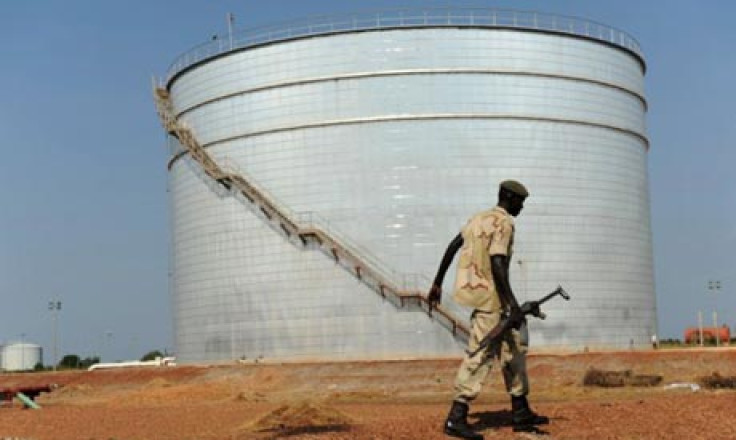South Sudan Conflict Jeopardises Country's Oil Industry
A ceasefire might have been agreed in conflict-ridden South Sudan, but the lasting damage to its oil industry jeopardises the country's future. The UN says that a month of vicious fighting between those loyal to President Salva Kiir, an ethnic Dinka, and the Neur rebels led by former Vice-President Riek Machar, has set the country back a decade.
As well as the thousands of lives that have already been lost in the conflict, the fighting has also severely harmed the future revenues of the country's oil industry, and with it the chance for the world's youngest nation to lift half of its population of over eight million people out of poverty.
"South Sudan oil is the life blood of the economy. It makes up 98% of government revenues. It's really the key if South Sudan wants to develop other sectors of its economy, particularly agriculture," explains Luke Patey, a senior researcher at the Danish Institute for International Studies and author of the book 'The New Kings of Crude: China, India and the Global Struggle for Oil in Sudan and South Sudan'.
The fighting did not break out because of oil, but it's quickly become of strategic importance to both sides seeking to gain the upper hand. The oil-rich states of Upper Nile and Unity became major battlegrounds in the conflict as rebel forces sought to gain leverage and put pressure on the government, shutting down over a third of South Sudan's total oil production.
China is the largest investor in South Sudan's oil industry today, taking in 80 % of the country's oil exports. The state-owned China National Petroleum Corporation has evacuated employees, including from the country's largest oilfield at Palogue, because of the violence, and Patey says that the likes of China and India will now be more reluctant to invest in South Sudan in the long term.

"South Sudan's oil fields are quite old and they need a lot of investment to stabilise production in the long term. So what the conflict has done is that it has upset the longevity of the oil industry, because companies will be less enthusiastic about investing with the long term in mind. The damage has already been done through the conflict, and it will take some years to get investor confidence back up," Patey says.
Since its birth South Sudan's chances of social development has been hampered by bitter infighting and corruption. The country pumps out 350,000 barrels per day, representing 60% of GDP, and yet just 10% of oil revenues go towards infrastructure and 7% to education. President Kiir acknowledged in 2012 that $4bn (£2.4bn) in oil revenue had been stolen by corrupt officials. All this in one of the world's least developed countries, where a young woman is as likely to die giving birth as she is to finish primary education, and one in every ten children dies before his or her fifth birthday.
The damage has already been done through the conflict, and it will take some years to get investor confidence back up.
The oil will not last forever, and after the latest fighting, there will be even less funds towards building a sustainable future. For a country not even three years old, the window of opportunity is quickly closing shut.
"The conflict and the negative impact it's had on the oil industry doesn't hurt the everyday man or woman on the street, it hurts the hope that one day petrodollars could be used to build the economy further and to lift the country out of poverty, which large parts of the country are in," Patey says.
Before the fighting broke out, Kiir was considering signing the Petroleum Revenue Management Act into law to tackle corruption. If used properly, the money generated from oil could help the country blossom, lift millions out of poverty and allow its people to prosper. The conflict in South Sudan is not only endangering the nation now, but jeopardising its future.
© Copyright IBTimes 2024. All rights reserved.






